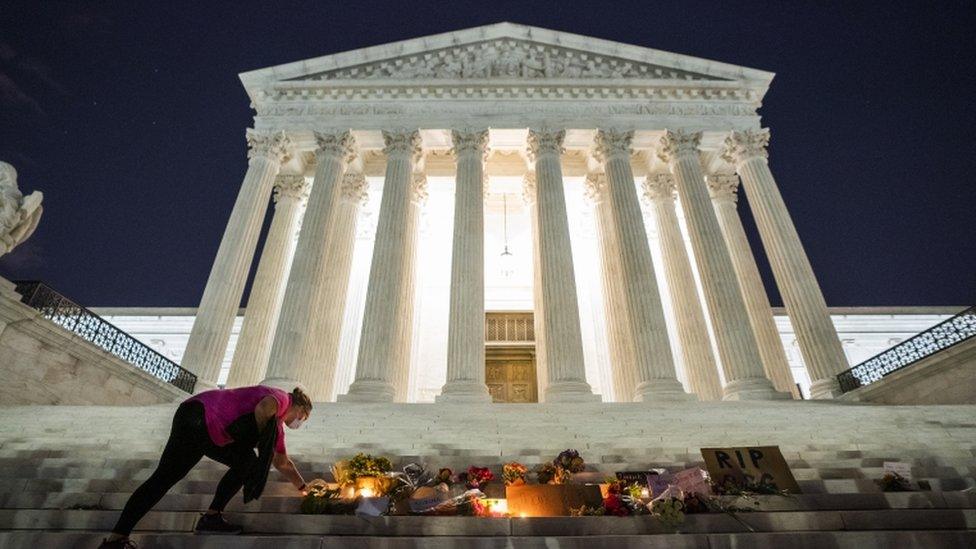Profile: Brett Kavanaugh, Trump's choice for Supreme Court
- Published
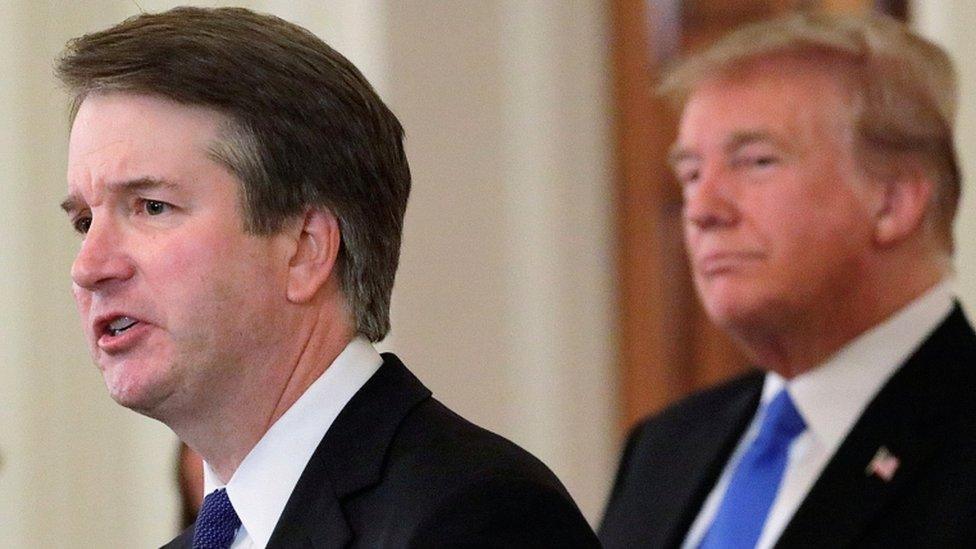
Brett Kavanaugh had been seen as a safe choice for Supreme Court nominee
On paper, US President Donald Trump's nominee to the Supreme Court, Brett Kavanaugh, has an impeccable legal pedigree and is seen as a safe pair of hands in Washington.
But the allegations of sexual misconduct which have emerged during Senate confirmation hearings have cast a shadow. He denies the allegations.
A Yale law school graduate, he was born in Washington DC, and has served since 2006 on the influential US Court of Appeals for the District of Columbia Circuit, ruling on some of the nation's most high-profile cases.
He worked previously as White House lawyer and adviser under George W Bush.
In the 1990s, he worked for Kenneth Starr, the independent counsel who investigated then President Bill Clinton, helping draft the report urging the Democrat's impeachment.
He was also a clerk to the man he is due to replace on the Supreme Court, Justice Anthony Kennedy, 81, who is to retire later this year.
As an ideological conservative, he would be expected to push the court to the right on a number of issues including business regulation and national security.
Judges are appointed for their lifetime, and as Mr Kavanaugh is relatively young at the age of 53, he could serve for decades to come.
The US Supreme Court is the ultimate arbiter on contentious laws and disputes between states and the federal government, and rules on such issues as abortion, the death penalty, voter rights and immigration policy.
Mr Kavanaugh is Mr Trump's second Supreme Court appointment, out of nine judges. The court already has a 5-4 conservative majority, but his appointment could shift the bench further to the right than under Mr Kennedy, who occasionally sided with the four liberal justices in the court.
Supreme Court nominee Kavanaugh: 'I'm a team player'

Where does he stand on key issues?
The nominee himself described his judicial philosophy as "straightforward".
"A judge must be independent and must interpret the law, not make the law," he said. "A judge must interpret statutes as written. And a judge must interpret the Constitution as written, informed by history and tradition and precedent."
Some of his previous rulings give an idea of his opinion on a range of important matters.
Explaining Roe v Wade and abortion in US
Abortion
Mr Kavanaugh has not expressed outright opposition to Roe v Wade, the 1973 Supreme Court ruling that legalised abortion nationwide, but he has given some indications of where he might stand.
Last year, the DC Circuit Court ruled that an undocumented immigrant teenager in detention was entitled to seek an abortion.
Mr Kavanaugh objected, saying that her right to have an abortion was "based on a constitutional principle as novel as it is wrong: a new right for unlawful immigrant minors in US government detention to obtain immediate abortion on demand".
He argued the teenager needed an adult sponsor (as her parents were not available) with whom to discuss her decision.
He did, however, write in his dissent to the ruling that the court must recognise Roe v Wade and another abortion rights case "as precedents we must follow".
Executive power
Mr Kavanaugh argued in a 2009 article that presidents should be shielded from criminal investigations and civil lawsuits while in office. That could be a red flag to Democrats - indicating that if the special counsel investigation into Mr Trump's alleged campaign ties to Russia finds its way to the Supreme Court, he would not support action against Mr Trump before his term is up.
Guns
He is pro-second amendment - the constitutional right to bear arms. In 2011, he objected when the DC Circuit Court upheld a ban on most semi-automatic rifles in the district. He argued that, because most handguns are semi-automatic, and are protected by a previous Supreme Court ruling, semi-automatic rifles should benefit from the same protection.
The environment
Mr Kavanaugh has issued rulings and dissents against Obama-era environmental regulations, including efforts to curb air pollution from power plants and greenhouse gases.

- Published24 September 2018
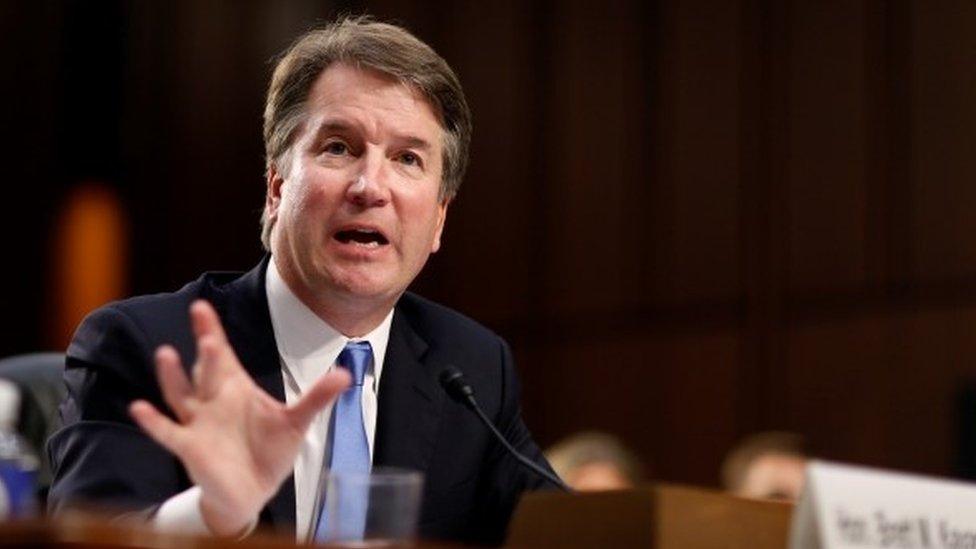
- Published6 September 2018
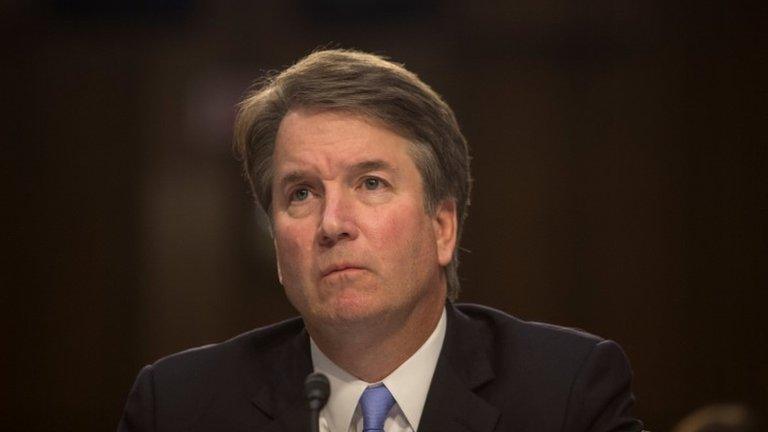
- Published10 July 2018
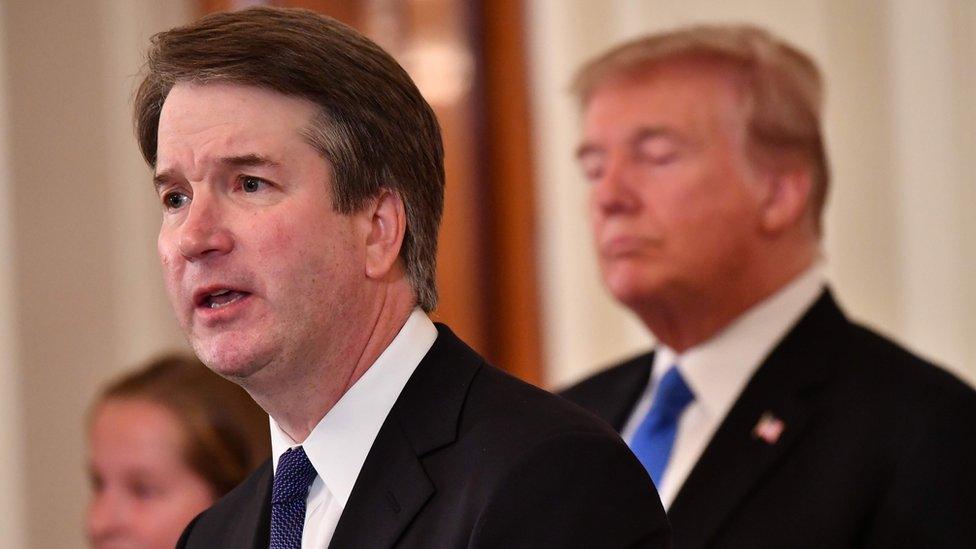
- Published10 July 2018
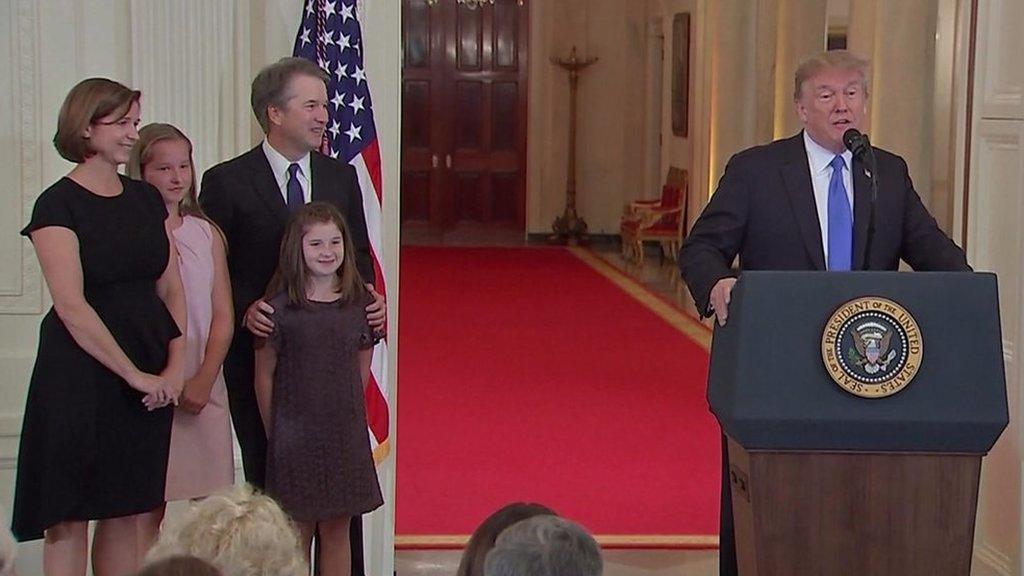
- Published8 February 2024
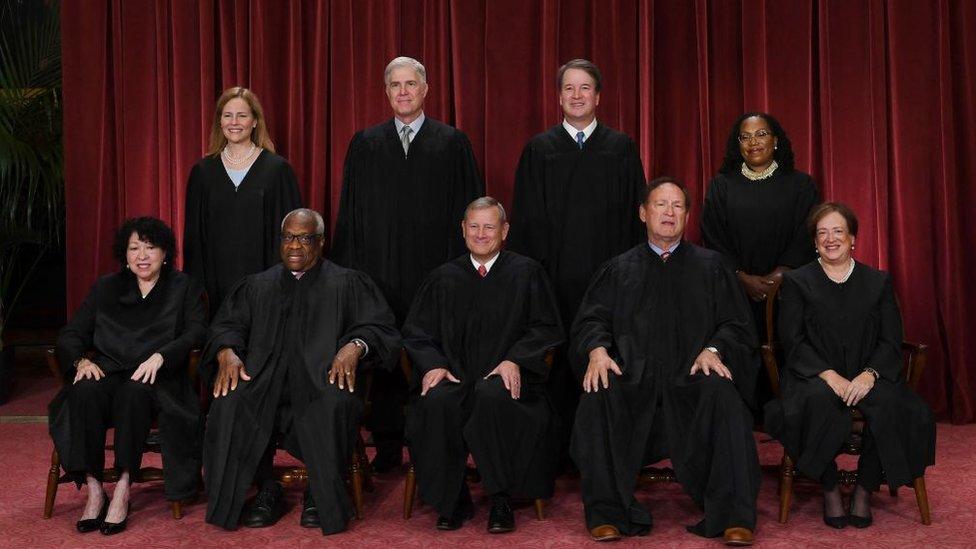
- Published19 September 2020
